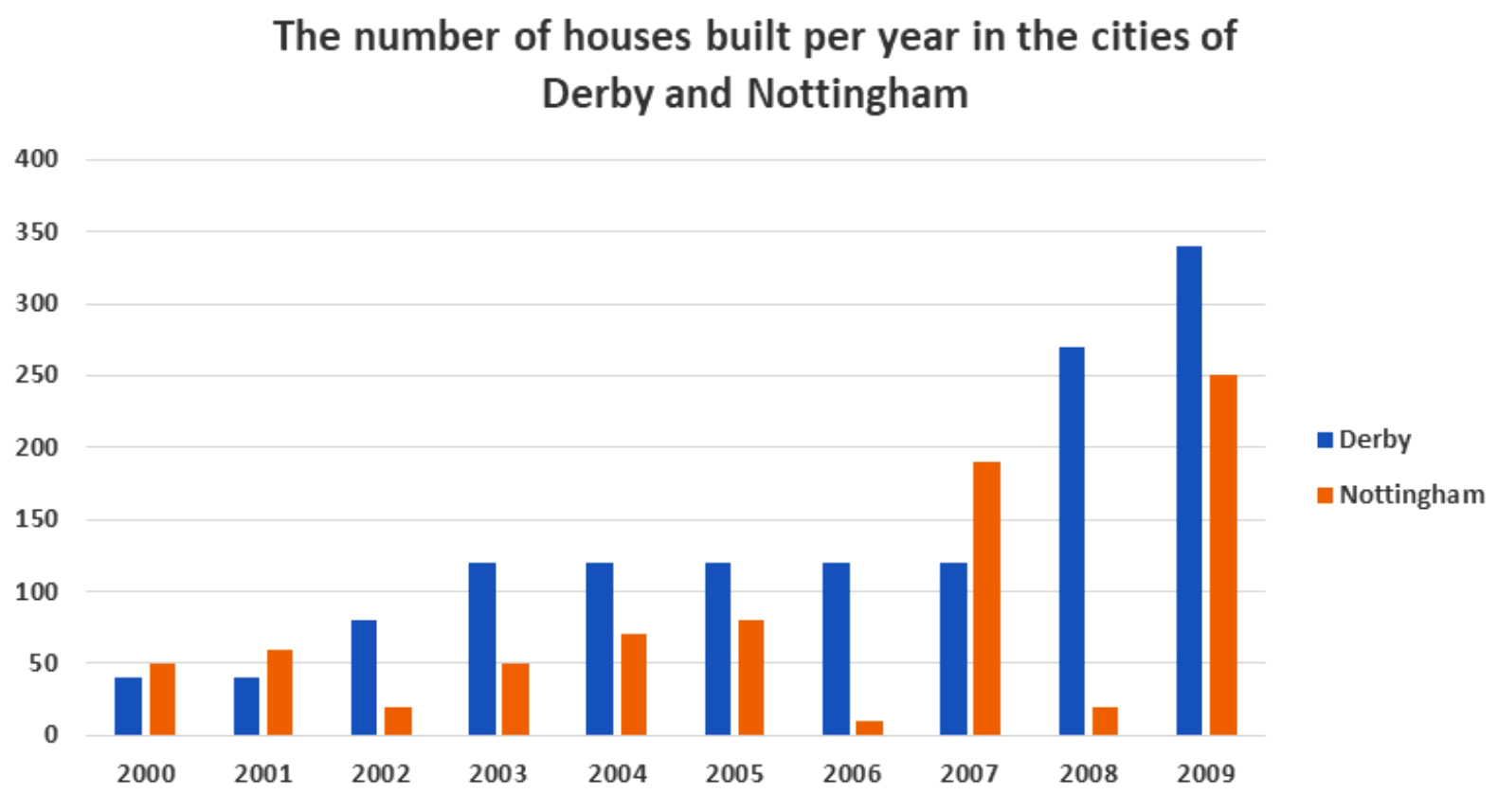IELTS Writing Recent Actual Test 26
WRITING TASK 1
You should spend about 20 minutes on this task
The bar chart below shows the number of houses built per year in two cites, Derby and Nottingham, between 2000 and 2009.
Write at least 150 words.

WRITING TASK 2
You should spend about 40 minutes on this task
Write about the following topic:
Education for young people is important in many countries. However, some people think that the government should spend more money on education in adult populations who cannot read and write. To what extent do you agree or disagree?
Give reasons for your answer and include any relevant examples from your own knowledge or experience.
Write at least 250 words.
SAMPLE ANSWER IELTS WRITING TEST 26
WRITING TASK 1The graph compares two cites in England namely Derby and Nottingham in terms of the number of houses built each year, from 2000 to 2009.
Overall, both sets of figures for Derby and Nottingham witnessed an upward trend over the ten-year period. However, while the number of houses built each year in Derby either increased or stayed the same, the figures for Nottingham saw greater fluctuations.
In 2000, the number of newly built homes in Derby was just under 50, and steadily increased over the next three years to reach around 125 houses in 2003. The figures then remained the same for the next four years before dramatically increasing in 2008 and 2009, to reach a figure of approximately 350 homes by the end of the period.
However, the figures for Nottingham followed a rather different pattern. Between 2000 and 2005 the figures for newly built homes fluctuated around 50, before dropping to almost 0 in 2006. A large increase of almost 200 newly built houses was seen in 2007, but the figure then once again dropped to around 10 houses in 2008. 2009 witnessed another surge in the number of new houses, with the figure peaking at 250.
(199 words)
WRITING TASK 2Formal schooling for the young is of immense significance for a country’s socio-economic development, however, some people are convinced that more money should be allocated for educating illiterate adults. I agree with this view to some extent and will analyse the issue in the following essay.
On the one hand, government budgets in many countries, particularly in under-developed and developing nations, are limited. Therefore, if more funding is spent on improving adult literacy rates, the education of children and adolescents may suffer as a consequence of less funding. Eventually, maintaining a suitable level and quality of education, for both children and illiterate adults, may become an impossible task with limited funding, possibly negatively affecting the education of both groups.
However, due to a decrease in the number of blue-collar jobs, thanks to automatic processes, a large number of illiterate adults who work in such positions are being made redundant, and therefore increasing the unemployment rate due to their lack of literacy skills when searching for other types of work. This situation not only reduces the standard of living for many people, but is also an underlying motive for a rise in social problems, such as crime, homelessness, and poverty. Providing formal schooling to adults who cannot read or write proves to be a useful measure to reduce the negative consequences that may occur in a society with high levels of adult illiteracy.
In conclusion, state funding may not allow an adequate amount of money for the education of both the youth and adults to take effect. However, I still believe that if more money is spent on educating illiterate adults, social welfare in such regions will benefit tremendously.
(278 words)
